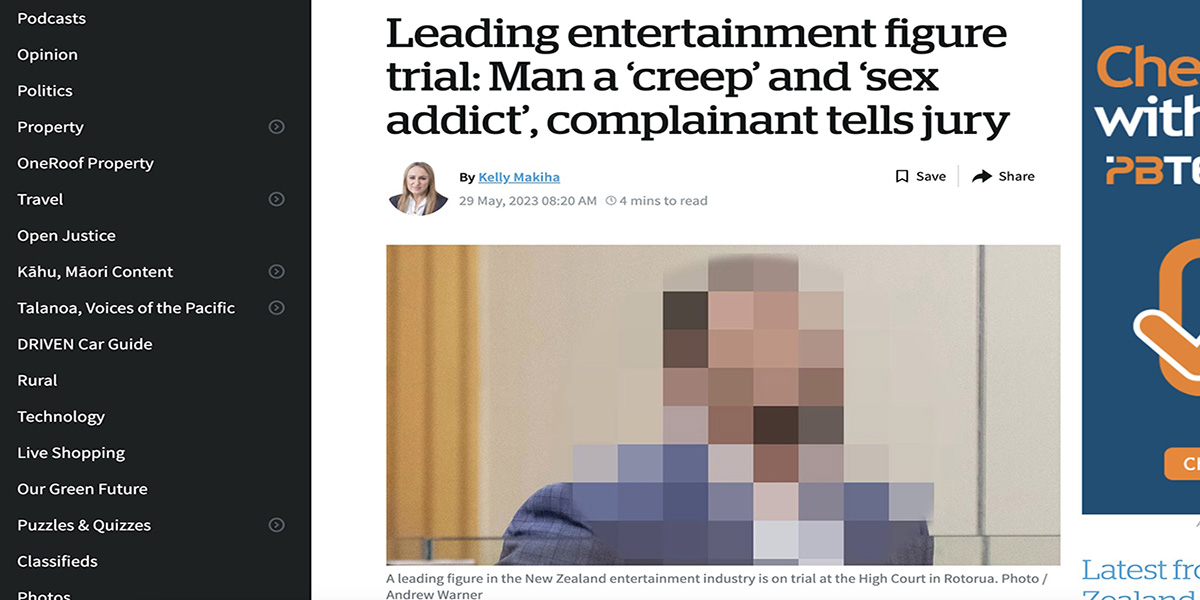Loading player
In New Zealand a “prominent figure” of the show is under process on various counts of sex crimes and drug-related offences. The man allegedly raped or molested nine women on various occasions over several years, in some cases after taking drugs and forcing them to do the same. Who this “prominent figure” is, however, is not known outside the courtroom in which the trial is taking place, because the identity of those involved, as accused or injured party, is protected by a law on privacy. This possibility, called “name suppression”, is Preview as a derogation from the principle of public justice (“open justice”) generally supported by the New Zealand judicial system, according to which hearings must be open to the public and the media free to document them.
The removal of names for the accused is a feature of New Zealand law, and it was introduced in 1920. At the time it was mainly designed to protect young defendants with a clean record. Since then its application has undergone various changes and has extended a lot, and today the rule is a law of 2011, which automatically provides for it in cases involving sexual offenses or crimes involving minors. It can also be requested in situations where it is believed that the publication of the names of the persons involved could lead to “extreme difficultyà” to the accused, his family or other people close to him, and in some other cases: such as the risk that it could lead to the identification of someone else already subject to name removal, or prevent the accused from having a due process, for example if it is believed that the consequences of publishing the name could affect the jury.
The principle therefore not only protects the victims, for whom the prohibition of dissemination of the name is envisaged in various countries, but also defendants and third parties. This principle is not precisely defined, and the adjudicator must consider the specific circumstances, but there is a clear system of precedents which establishes that the extreme difficulties are not only those more usually connected with the embarrassment and discomfort of being accused of a crime. The evaluation process of these difficulties takes time, and whoever has requested it can obtain a temporary suspension of the publication of the name for the duration of the process: it is called interim name suppression. If, on the other hand, the requirements are verified, the law comes into force final name suppression, which makes the ban on the publication of names permanent.
The principle was, and in part still is, criticized by the New Zealand press, which called it a “policy of silence” (hush-hush policy), and considers it a limitation of the principle of public justice and the right to report. Before the introduction of the new guidelines for judges in 2011, which established what the criteria minimum to require it, the principle was applied liberally enough by judges, often protecting people more for their reputation than for an assessment of the hardships they would suffer.
Since then similar cases have decreased, and the law is recognized as a good compromise between the right to report and the right to privacy also by the media, which however often continue to present appeals against the granting of the removal of the name in the trials of greatest interest: and l last year the Minister of Justice had supposed interventions defining the norm too little respectful of the victims.
The rule also forces the newspapers to mince words to refer to the accused persons, such as “leading entertainment figure” for the leading figure in show business mentioned at the beginning of the article, or “high-profile athlete” for Joseph Parker, a former world champion boxer involved – but only as a witness, without being accused – in a trial for drug trafficking. His identity has been the subject of interim name suppression for almost two years, but the appeal for the definitive removal of the name was rejected by a judge in 2019, thanks also to a legal battle conducted by Stuff, one of the largest news sites in the country. These turns of phrase often appear in the various articles that follow the developments of a process, and characterize the titles of New Zealand court reporting.
